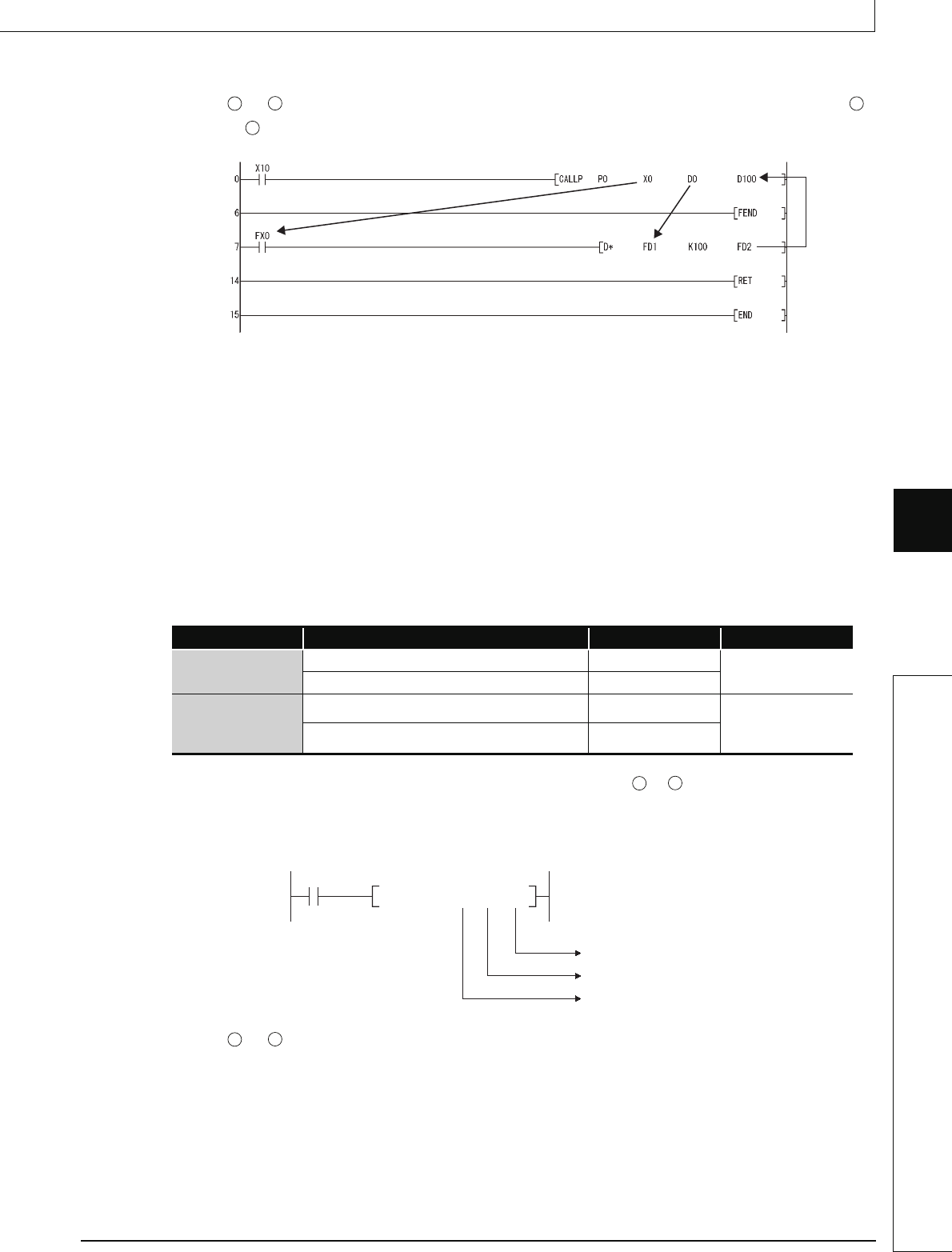
7-111
CALL(P)
1
2
3
4
6
6
7
8
7.6 Structure creation instructions
7.6.3 Subroutine program calls (CALL(P))
(2) When function devices (FX, FY, FD) are used by a subroutine program, specify a device with
to corresponding to the function device. The contents to the devices specified by
to are as indicated below.
(a) Prior to execution of the subroutine program, bit data is transmitted to FX, and word
data is transmitted to FD.
(b) After the execution of the subroutine program, the contents of FY and FD are
transmitted to the corresponding devices.
(c) The processing units for the function devices are as follows:
• FX, FY: Bits
• FD
: 4-word units
The size of the data to be dealt with will differ depending on the device specified in the
argument. The device specified as a function device should be secured for the data
size. An error will occur if it cannot be secured for the data size.
*1: An error will not occur even when the device number specified by to is not a multiple of 16 at the digit
designation of the bit device.
[Main routine program]
(3) to can be used with the CALL (P) instruction.
(4) The number of function devices to be used by a subroutine program must be identical to the
number of arguments in the CALL (P) instruction.
Also, the types of the function device and CALL (P) argument used should be identical.
(5) Device numbers specified by the CALL (P) instruction should not overlap.
If they do overlap, it will not be possible to obtain accurate calculations.
Function devices Device Data Size Remark
• FX
• FY
Bit device
1 point
––
When bit designation is made for word device
1 bit
• FD
When digit designation of a bit device is used *1
4 words
The data size varies
depending on the
instruction to be used.
Word device
4 words
S1
S5
S1
S5
S1
S5
Occupies from D0 to D3 (Transfer to FD1).
X0
D30
Occupies from D30 to D33 (Transfer to FD2).
Occupies M0 (Transfer to FX0).
D0M0P0CALL
S1
S5


















